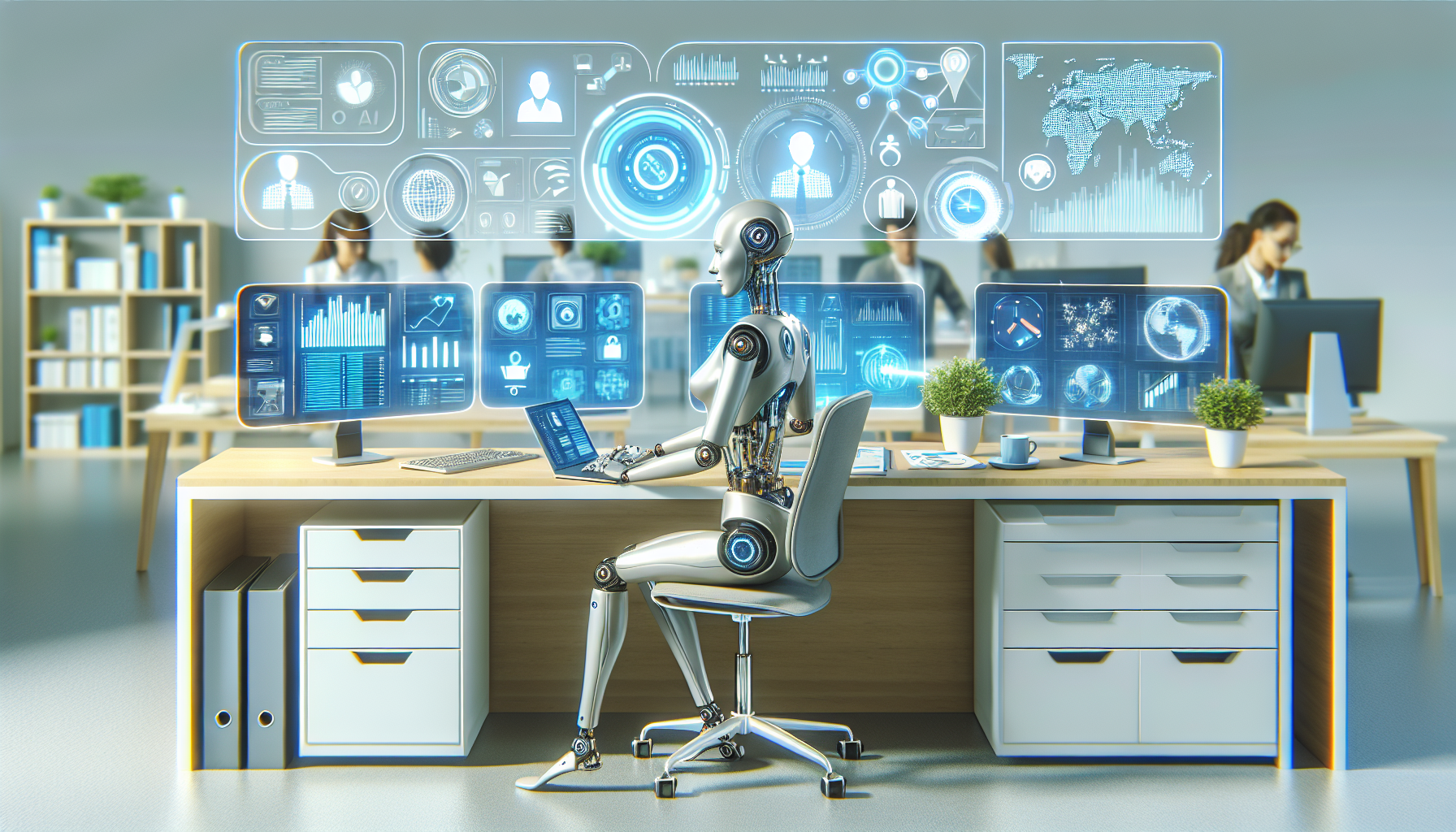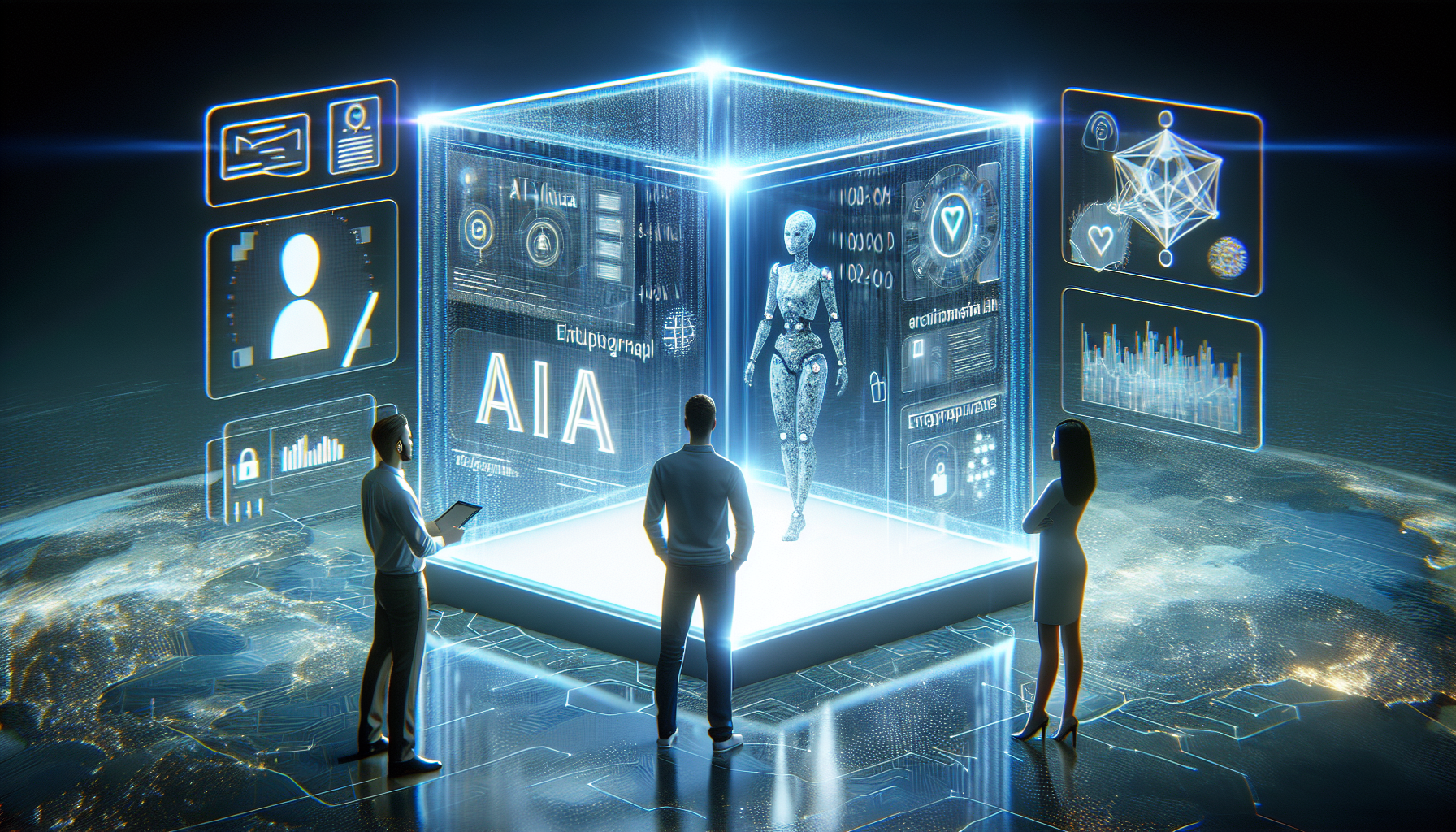
In a world increasingly dominated by technology and rife with competition, businesses are always looking for unique ways to enhance user experiences. At the forefront of this movement is the utilization of Artificial Intelligence (AI) to personalize customer interactions. More specifically, we are witnessing the rise of smart receptionists which use AI to learn and adapt to individual customer preferences.
The driving force behind this innovation is personalization. Modern consumers crave personalized experiences that cater to their specific needs and preferences. With AI's ability to collect and analyze vast amounts of data, businesses can tailor their services to meet individual customers' needs. In the realm of customer service, this is often accomplished through the deployment of AI-powered smart receptionists.

AI personalization refers to AI systems' learning and adapting to user behaviors and preferences. These methodologies are particularly effective in customer service scenarios, where understanding and predicting customer wants and needs is vital. By collecting and analyzing data from previous interactions, smart receptionists can offer individualized responses based on the learned customer preferences, thus delivering efficient and highly satisfying customer experiences.
From recognizing a customer’s preferred communication style to understanding their most common inquiries, smart receptionists are redefining first-line customer interaction. This hyper-targeting technique allows businesses to stay ahead of the curve, delivering hyper-personalized experiences, strengthening customer loyalty, and ultimately increasing their bottom line.
The transition toward AI personalization in customer service, facilitated by smart receptionists, is something we should embrace as both businesses and consumers. The benefits of this transformed, personalized interaction landscape are immense, and we have only just begun to tap into its potential.
The age of traditional receptionists is being gradually phased out by the introduction of AI-based Receptionists. These digital front-end professionals are equipped with artificial intelligence that enables them to interact with customers in natural language. One superior feature that stands out is their ability to learn customer preferences. So, how do they do this?
AI receptionists function based on a principle known as Machine Learning. They collect customer data from consistent interactions and store it in vast databases. This information is later scrutinized to identify patterns and anticipate future customer behaviors.
For instance, if a frequent customer usually asks for specific services or products, the AI can remember these preferences. Consequently, in future interactions, it can make personalized suggestions based on the previous choices, reflecting a deep understanding of the client's needs. This proactivity enhances the customer experience and can considerably improve business performance. Furthermore, these smart AI-based receptionists avoid the risk of forgetting or misrecalling client information, thanks to their impeccably precise memory.
When it comes to personalization, the sky's the limit. AI receptionists aren’t bound by office hours. As such, they can familiarize themselves with the customer's preferred time of contact. By analyzing past interactions, they can accurately predict the best time to initiate contact, making the interaction more personal and engaging.
Personalization in AI isn't just about utility and convenience but also about building customer relationships based on trust and personalized service. The advent of AI receptionists that learn and adapt based on customer preferences has indeed revolutionized the entire business-customer interaction model.
With the evolution of Artificial Intelligence, today's Smart Receptionists are offering businesses incredible opportunities to boost productivity and generate exceptional customer experiences. A key factor to their success is their ability to integrate seamlessly with existing business tools, from customer relationship management (CRM) platforms to databases, to learn and apply customer preferences in real time. This compatibility is the cornerstone of true personalization in AI.

Once integrated with these tools, the AI-powered receptionist becomes a hub of intelligence, dynamically learning from information already stored about customers and applying these preferences to future conversations. For instance, let's take the instance of integration with a popular CRM tool like Salesforce. Not only can these AI receptionists access a customer's past interactions, but they can also note preferences, past complaints, and even the customer's preferred times for contact. This allows businesses to tailor conversations, improving the customer experience immeasurably.
Similarly, these AI receptionists can sync with other databases, be it a previous purchase history, personalized customer preferences, or other historically recorded interactions. By accessing and analyzing this data, the AI receptionist can predict what a customer expects and adapt their response accordingly. This not only gives an impression of personalized attention but also makes customer interactions efficient and effective.
Furthermore, learning customer preferences is an ongoing process for these intelligent chatbots. They are capable of continuously updating their knowledge base as more customer interactions occur. Advanced machine learning algorithms monitor customer interactions and facilitate proactive learning, helping the smart receptionist to keep up with changing customer patterns and needs.
Through the strategic integration with business tools, AI receptionists clearly demonstrate the power of personalization in AI. The extent to which businesses leverage this capability will determine their success in an increasingly competitive marketplace.
At the heart of customer preference identification lies the potent power of Machine Learning. It is through Machine Learning that AI-powered smart receptionists are empowered to analyze, learn, and finally understand customer behaviors. Noticeably, this technology goes beyond mere procedural response and record keeping. It extensively contributes to enhancing user experiences by providing personalized interactions based on individual preferences.
Machine Learning, a crucial subtype of Artificial Intelligence, employs advanced algorithms to gradually improve itself over time, without explicit programming. These algorithms, also known as learning models, provide the basis for the system’s ability to capture and analyze massive amounts of data. They make it possible to identify and comprehend intricate patterns and correlations within the data, thereby predicting, understanding, and adapting to individual user preferences effectively.
Two major classes of machine learning models play a critical role in this context: Supervised Learning and Unsupervised Learning. Supervised learning involves training an algorithm based on a labeled dataset. In the case of AI receptionists, this could include historical client interaction data that helps the system predict future responses. On the other hand, unsupervised learning enables AI to identify patterns and correlations from unlabeled data, thereby discovering customer preferences that may not have been explicitly recorded.
Clustering algorithms - a popular technique in unsupervised learning, allow AI systems to categorize customers into various groups based on their recorded interactions. This further aids in achieving effective personalization.
It's crucial to mention the role of Deep Learning too, a subfield of machine learning focused on artificial neural networks. It's instrumental in shaping advanced AI receptionists that can effectively mimic human receptionist interactions. Over time, the AI learns and makes necessary adjustments to its interaction strategies, thus providing an enriched, personalized experience to the customers.
In the rapid pace of digital transformation, businesses are increasingly leveraging artificial intelligence (AI) for more than just automation. Primarily, one of the significant trends is personalization, tailoring experiences to individual customer's preferences and habits. The AI frontier manifests incredibly well in the phenomenon of Smart Receptionists – advanced personalization tools that not only respond but also learn and adapt to meet customer needs more effectively.
Banks and financial institutions are perhaps the best testimonies to the promising potential of AI personalization. SEB, the leading Nordic corporate bank, is an excellent case study. Their AI Virtual Assistant, Aida, handles 8,000 customer interactions per month, learning to personalize responses and propose solutions based on client history. The outcome? Drastically improved customer satisfaction and significantly reduced response times.

Another sterling example of AI personalization enhancing customer experiences is Lowe's lab project, Lowebot – a retail service robot guided by natural language processing. Lowebot not only directs customers to desired products but also learns to notice patterns in customer shopping habits. The customization strategy here led to customer satisfaction with the knowledge that the store understands and caters to their needs, boosting overall engagement and sales.
Moreover, the impact of these Smart Receptionists isn't limited to customer-facing roles. Internally, they're reducing employee workloads, executing mundane tasks, and freeing up time for workers to focus on more complex issues. This internal service optimization further results in enhanced customer experiences, as employees can bring more value to their interactions.
With each interaction, these intelligent systems continue to evolve, enhancing their potential to offer personalized solutions. As they become an integral part of business operations, Social Economy projects that such AI-based personalization can unlock $2.95 trillion in business value by 2022. By understanding and adapting to their customers, businesses are finding new ways to enhance satisfaction, boost loyalty, and increase their market share in the digital age.
In the realm of AI personalization, the role of AI-powered smart receptionists has grown considerably. These intelligent systems, capable of learning customer preferences over time, have the potential to revolutionize how businesses interact with their customers. However, their implementation is not without its challenges and ethical dilemmas.
One of the foremost challenges is data privacy. To effectively discern customer preferences, AI-receptionists require detailed data about individual clients. The methods used in data collection and the extent of data collected often raises pertinent issues related to customer privacy. This is particularly true if the AI systems analyze sensitive information, such as commercially confidential information or personally identifiable information (PII).
Another hurdle is ensuring the ethical use of data. This includes making certain that customer data isn't used for exploitative purposes or sold to third parties without the customer's informed consent. It is essential for businesses and AI developers to uphold high data ethics standards and prioritize transparency with customers.
An additional concern is that of algorithmic bias. Algorithms, being the product of human design, can unintentionally perpetrate and even magnify existing biases. As a result, their responses or recommendations may be skewed, resulting in unfair treatment of certain customers. It is therefore critical for AI developers to acknowledge the risk and implement measures to prevent algorithmic bias.
Although AI personalization in the form of smart receptionists presents impressive possibilities, it is vital to navigate these associated challenges with care. In addressing these challenges, businesses can not only improve the AI’s effectiveness and customer satisfaction but also minimize potential harm while upholding user trust and loyalty.
Start your free trial for My AI Front Desk today, it takes minutes to setup!








